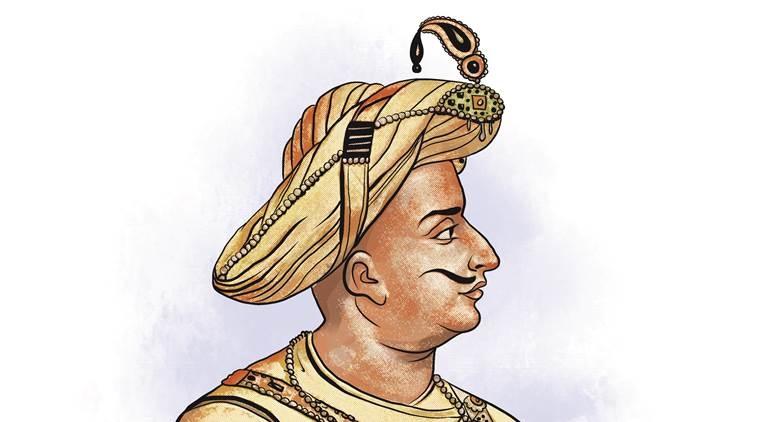Why Tipu Sultan? Historical Inaccuracy and Politics of Sentiment in Karnataka

Tipu Sultan was no freedom fighter, was not a social reformer or a religious leader, but a ruler in 18th century Mysore. In 2015, the then Congress government in the state led by Siddaramaiah decided to celebrate the monarch’s birth anniversary every year; in turn enraging Hindutva organisations and the Bharatiya Janata Party (BJP), who protested against this move of the government. Since 2015, every year in November, the Hindutva organisations and BJP approach the court to order a stay and on the court’s refusal, these organisations stage a protest against the celebrations.
It is no different this year. Daijiworld reported, a division bench of the Karnataka High Court presided over by Chief Justice Dinesh Maheshwari, which heard two separate public interest litigations (PIL) filed in this regard, said that the court does not intend to interfere with the policies and decisions of the government at this stage, as already clarified in 2016 and 2017. The bench also said that it would not be prudent to issue an order that is contradictory to the earlier stand; and now the BJP and Hindutva organisations have been staging protests across the state. According to various reports, section 144 has been imposed at several places, including Kodagu, Hubli and Dharwad cities from 6 a.m. on November 10 to 7 a.m. on November 11.
G. Parameshwara, the Deputy Chief Minister, who would be presiding all the celebrations in the state told The Indian Express, “The BJP protests against Tipu Jayanti celebrations without reason. Tipu fought against the British and we will ensure that the celebrations are held peacefully irrespective of protests by any group.” The BJP believes and argues that Tipu was a “religious bigot” and a “brutal killer”: he may indeed have been a “brutal killer” but historical evidences say that he was anything but a “religious bigot.”
One need not learn history, especially from BJP, for whom only that history is true which the Rashtriya Swayamsevak Sangh (RSS) would like to believe and think as true. As Chandan Gowda, a sociologist, said, “through the mysterious process of mythification seen in India, which frees individuals from their community identity in cultural memory, Tipu Sultan, the ruler of Mysore (1750-1799), appeared as everyone’s icon. He was the Tiger of Mysore.”
Why Tipu Sultan?
Why the Congress chose Tipu Sultan of all the other icons who fought against the British to commemorate, needs to be examined.
Anyone who grew up and received formal education in Karnataka remembers Tipu Sultan as the “Tiger of Mysore.” Starting from poems in Kannada textbooks to fancy dress competitions for the annual day celebrations or annual Independence Day celebrations, Tipu was a hero. History textbooks introduced his fight against the British, as well as sacrifices and politics, as a king of Mysore. However, now Tipu is just not any other hero who existed in the relics of the feudal past, but a controversial figure of communal politics in the present. One wonders why a political party in a democracy would be interested in celebrating a monarch. The celebrations of birth anniversaries of historical figures and installing statues of them is all to generate sentiments among voters.
As H. S. Anupama, who is a doctor, writer and activist wrote, “Would the celebration of the birth anniversary of a “Muslim ruler” solve the problems that the community is facing today? Tipu is a political figure in the state now.”
Tipu Sultan was the best possible figure that the Congress could have chosen. People in the state have grown respecting the ruler of Mysore and there exists a culture around Tipu. As Gowda noted, thousands of plays on Tipu have been staged across the state during the late 19th century and 20th centuries. History textbooks and popular literature, like the Amar Chitra Katha comics, were unequivocal in viewing him as a brave martyr who went down fighting the British. Even if the Congress would be accused of “minority appeasement” politics, the party knew it is not going to cause any damage to the following of the party, as they were aware of the fact that despite the BJP’s campaign of labelling him as a Muslim ruler, Tipu holds a special place in the socio-cultural imagination of the state.
As mentioned earlier, Tipu was a monarch just like any other monarchs in Indian history. The expansion of his kingdom and with the advent of the British, retaining his rule on Mysore were his goals and he did exactly the same. He did wage wars against the neighbouring and powerful Marathas, the Nizams of Hyderabad and the rulers of Travancore and these wars did lead to a lot of bloodletting. However, to single out Tipu as a “brutal killer” based on these wars and killings would be unfair, as this is what the monarchs did then. Gowda observes, “The brutal killings that underlie the work of running and expanding kingdoms usually do not stand out in the routine historical accounts where rulers come and go. The violence and the deaths behind it all stand muted and anonymised. Even Raja Raja Chola and Krishnadevaraya, among many others, appear as great warrior kings without their victims anywhere in sight.”
Also Read: Karnataka BJP’s ‘Jihadi’ Murder List and its Realities
Tipu made Annual Grants to Temples?
The victims of Tipu in the past are rushed to the sensibilities of certain groups in the present times as part of the communal politics of the BJP to point at his Muslim identity. For the BJP and its allies, he was a ‘Muslim king who killed Hindus and looted and destroyed temples’. On the contrary, historical records show he paid annual grants to 156 temples, and there still stand two temples in the Srirangapatna fort, and he had been a patron for the Shankaracharya of the Sringeri Math as well. Interestingly, records also show that many of Tipu’s high officers and administrators were Hindus and Brahmins.
Other than the fact that the BJP does not care about historical evidences, in the case of Tipu, the saffron party in the state has been trying its best to be in accordance with the Hindutva line of its government in the center currently. It is interesting to observe that it was only in 2015 that Tipu became a problem for the BJP. In 2012, B. S. Yeddyurappa of BJP had felt it was important to dress like Tipu Sultan and praise the the ruler and it was important for him then to appeal to the Muslim voters. Now, the strategy of the BJP, however, is to garner Hindu votes by generating communal sentiments among the voters and spread fear among Muslims, thus Tipu Sultan becomes a problem for the party for whom he had been an icon for years.
In fact, Gowda notes, a Kannada biography on Tipu that the RSS published in the late 1970s in its “Bharata Bharati” series, praised him as a patriot and heroic personality, without offering any negative comment on him.
Also Read: How Not to Hollow Out the Constitution Bit by Bit
Get the latest reports & analysis with people's perspective on Protests, movements & deep analytical videos, discussions of the current affairs in your Telegram app. Subscribe to NewsClick's Telegram channel & get Real-Time updates on stories, as they get published on our website.






















